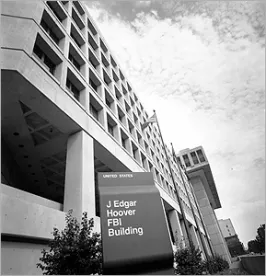Last week, the GSA Office of Inspector General (“OIG”) released a Report explaining how GSA decided to abandon previous plans to build a new suburban campus for the FBI, and instead demolish and then rebuild the J. Edgar Hoover (“JEH”) building in Washington, D.C. Although much of the coverage of the Report has focused on the role of the White House in the decision-making process and the GSA Administrator’s failure to acknowledge that role in testimony before Congress, the Report also highlights the Office of Management and Budget’s (“OMB”) strict approach to the budget scoring rules found in OMB Circular A-11, Appendices A and B.
As the Report explains, GSA originally planned to partner with a private developer to design and construct an FBI campus outside of Washington, DC in exchange for title to the JEH building and the land underneath. However, GSA was unable to secure the necessary appropriations to cover the difference between the value it would receive for the JEH building and the land underneath and the full cost of the new campus. Thus, on July 11, 2017 GSA canceled its plans for the FBI headquarters project through an exchange.
Shortly afterwards, GSA met “regularly” with the FBI to discuss a different acquisition strategy. Specifically, they discussed entering into a public-private partnership, whereby a developer would construct a new building and the government would lease the new building. Two-potential lease options were discussed: a lease with a bargain-purchase option, or a “ground lease-leaseback.” Under a ground lease-leaseback arrangement, the government leases federally-owned land to a private entity, which then constructs the facility and leases it back to the government.
Subsequently, the FBI determined that it would prefer to maintain its headquarters at the current JEH site, and GSA agreed to demolish and rebuild the JEH building. According to the Report, a January 24, 2018 meeting between President Trump, OMB Director Mick Mulvaney, GSA Administrator Emily Murphy, White House Chief of Staff John Kelly, FBI Director Christopher Wray, and Deputy Attorney General Rod Rosenstein resulted in the determination that the ground lease-leaseback was the best funding option because GSA believed OMB would score the ground lease-leaseback as an operating lease.
As we have previously explained, the OMB scoring rules typically require an agency to have sufficient budget authority to cover the entire amount of a long-term capital project upfront. There are, however, certain limited exceptions to the OMB budget scoring rules, including for real property projects that are classified as “operating leases” under OMB A-11. If a real property project is scored as an operating lease, Congress need only appropriate the lease payments on an annual basis. OMB’s strict interpretation of what may constitute an “operating lease” has previously prevented agencies from entering into public-private partnerships, including with respect to the FBI headquarters.
Unfortunately, shortly after the January 24, 2018 White House meeting, “OMB personnel” determined that the ground lease-leaseback approach would not be a viable option, presumably because it would need to be scored as a capital lease which required full upfront funding. Thus, not for the first time, OMB’s rules prevented the FBI headquarters project from making use of an alternative financing mechanism.
In February 2018, GSA submitted a revised FBI headquarters plan to Congress, and sought $2.175 billion in appropriations to fund the demolition and construction in a single phase. In other words, GSA sought full upfront funding. Whether Congress will appropriate the necessary funds remains to be seen, but as the Report notes, Congress previously elected not to appropriate a significantly smaller amount ($1.4 billion) to cover the difference between the estimated value of the JEH building and the cost of a new FBI campus.
However, the Report also mentions that the Federal Capital Revolving Fund (“FCRF”) could be used to finance the FBI headquarters project. The Trump Administration proposed the FCRF specifically to finance federal real property projects in a manner that did not result in full upfront scoring. If the FCRF is approved by Congress, it would be a means of allowing federal agencies to enter into long-term capital projects—like the FBI headquarters project—without running into some of the obstacles currently presented by the scoring rules.






 />i
/>i

